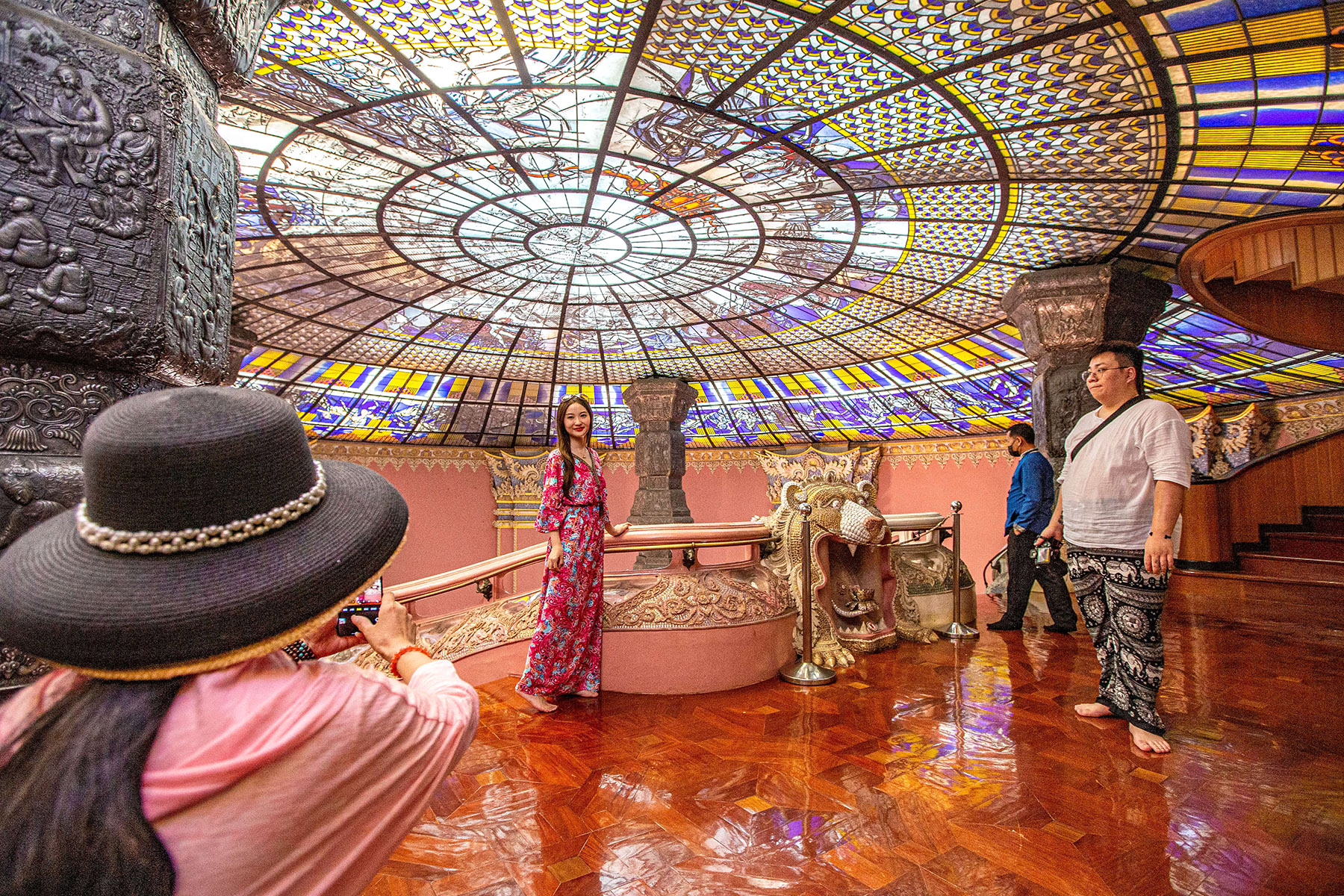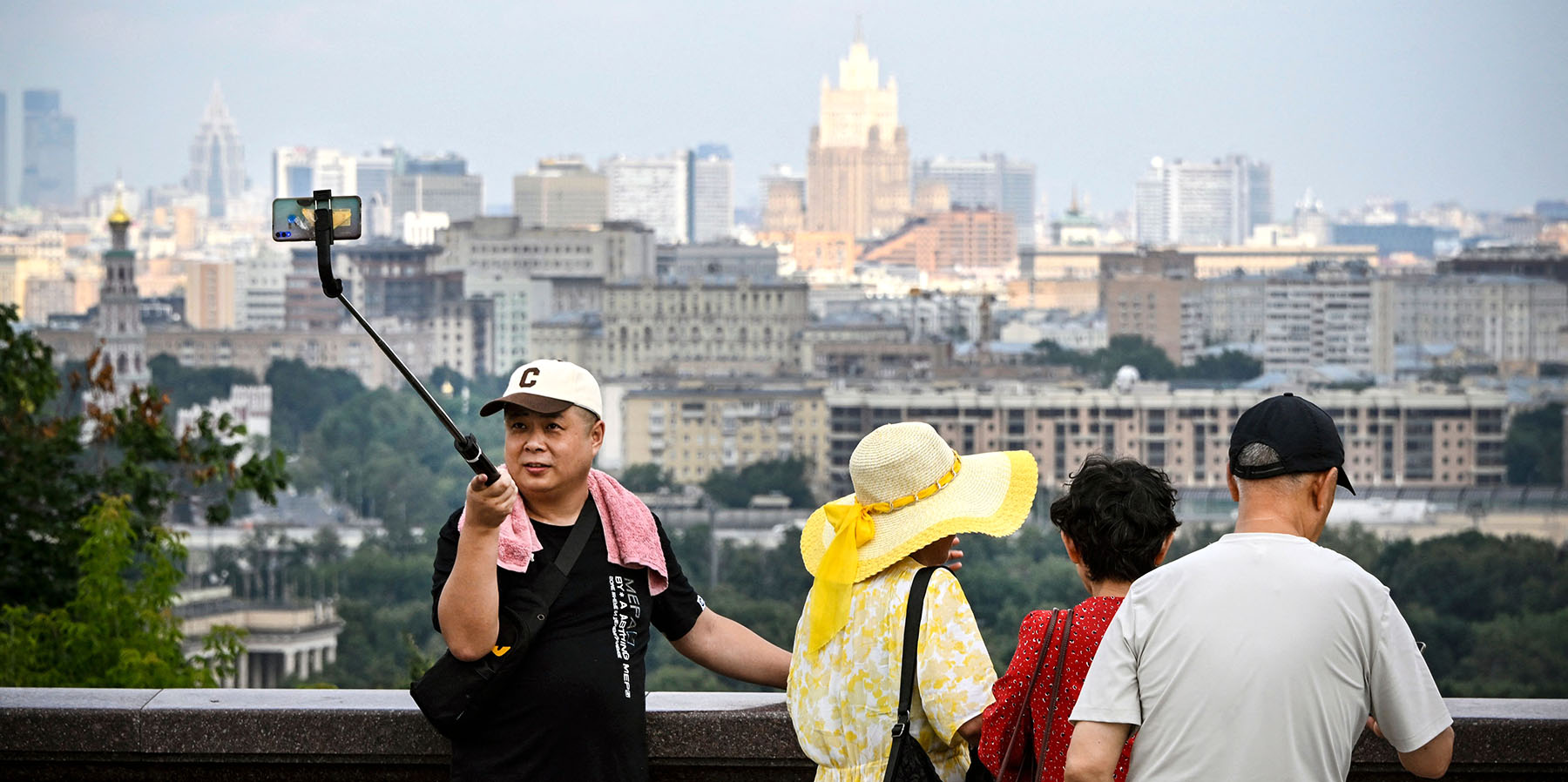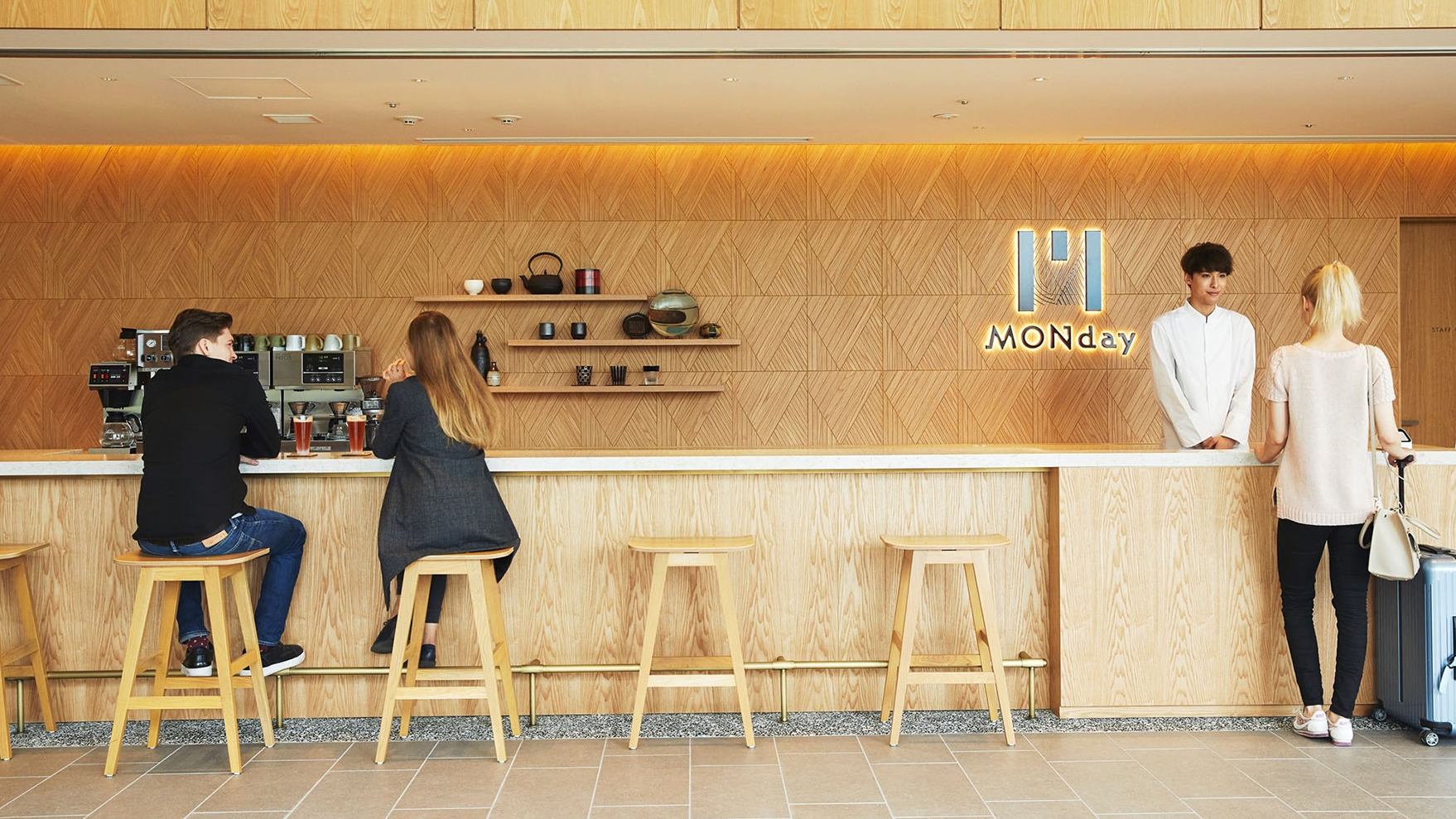Rapid rise in outbound travelers creates strong regional demand, opportunities

Since the country's outbound tourism market started to show signs of a steady recovery last year, a number of domestic hotel chains have begun expanding their overseas operations to cash in on Chinese travelers' wanderlust.
They have already made strong inroads in Japan, South Korea and Southeast Asian countries, the first nations to embrace the increasing arrivals of Chinese travelers.
Last September, iElectronic Sports Hotel announced it would construct its first overseas facility in the Malaysian capital, Kuala Lumpur.
The new hotel, which aims to attract esports enthusiasts, has made a total investment of 20 million yuan ($2.75 million) and will offer more than 80 guest rooms.
Malaysia is a travel destination favored by Chinese travelers, making it an ideal first spot for iElectronic Sports Hotel to expand internationally, said Yuan Yang, founder of the Beijing-based company, which was established in 2019 and focuses on providing accommodations for esports fans. It now has more than 150 hotel operations in over 100 cities in China.
READ MORE: More Chinese tourists favor taking trips to Central Asia
But the Kuala Lumpur hotel is not only for Chinese and other international visitors. Through its tailored facilities, it is also hoping to attract Malaysian guests eager to stay and immerse themselves in an e-sport environment.
Malaysia has over 1 million game users, all of whom are loyal fans of Chinese e-sports games, according to a report by Peking University's Institute of Area Studies.
Germany-based data analysis company Statista predicted that the number of e-sports players in Malaysia will see rapid growth, and reach 9.5 million by 2027.
Baez Yang, a representative of the hotel project, said it is a one-of-a-kind development in Malaysia, and aligns with the Belt and Road Initiative.
"It not only fills a gap in Malaysia's e-sports industry but also injects new vitality into the local market. In the future, it could become a local chain brand, driving development in Malaysia's e-sports industry," Yang said.
Among its features, the Kuala Lumpur hotel will have a top-floor garden that enables guests to enjoy coffee and drinks while using the highest-spec e-sports equipment to play popular games like Honor of Kings and Dota for free.
Immersive experiences will also be offered through themed decor, designed spaces, smart-lighting control, and cinema systems, Yang said.
More hotels catering to e-sports enthusiasts are likely to be established in other Malaysian cities as well as Vietnam, Thailand and the Middle East, the company said.
Zeng Bowei, a senior official from the China Leisure Association, said the hotel is setting an example for other Chinese hotel operators to follow abroad.
"From a global perspective, when Chinese domestic hotels reach a certain level of development, going global becomes an inevitable trend," Zeng noted.

Emerging markets
Elong Hotel, a hotel management unit of Hong Kong-listed online travel company Tongcheng-Elong, plans to have a facility in Jakarta, Indonesia, up and running by the end of this year.
"The hotel will offer the same high-quality products and services as in China, ensuring that travelers can experience the same familiar living environment overseas," said Zhou Qunxia, brand manager of Elong Hotel, which has more than 4,000 operations across the country and 20 million guest members.
The hotel's offerings will include premium bedding, comprehensive guest amenities, and butler service, Zhou said.
"At the same time, the hotel will also consider local customs and preferences to provide localized services," she said.
Elong Hotel already has hotels in Tokyo and Osaka in Japan, as well as Cambodia.
Southeast Asia, Japan and South Korea are the first choices for Elong Hotel, when it comes to locations for expanding its operations, Zhou said.
"Compared with the saturated hotel markets in Europe and the United States, these emerging markets are in a booming development phase and are still largely untapped," Zhou explained.
"The rapid economic growth in these emerging markets and the increasing demand for outbound tourism from Chinese travelers since last year provide vast opportunities for the hotel industry," she added.
The governments of these countries have offered tax incentives and investment subsidies to attract foreign investment and promote tourism development, creating a favorable environment for establishing and operating a hotel, Zhou said. With the introduction of favorable visa policies and the growing eagerness of Chinese people to travel, the outbound tourism market has seen a good recovery, she added.
The number of outbound tourists in 2023 exceeded 87 million, according to the annual report on China's outbound tourism development (2023-24) by the China Tourism Academy. The report predicts the number of outbound tourists will reach 130 million in 2024.
During the recent Dragon Boat Festival, searches for hotels overseas grew by 50 percent over the same period in 2019, an indication of the huge potential of outbound tourism, major travel agency Trip.com Group reported.
The large volume of Chinese travelers is poised to inject a major boost into the international tourism market and change the landscape of the international accommodation and travel industry, said Li Liang, CEO of the accommodation side of Tongcheng-Elong travel agency.
In the first three months of this year, overnight hotel room bookings increased by more than 150 percent year-on-year, the agency reported.
Li said young Chinese travelers are a big part of this increase, adding their destination choices, travel planning, and preferences differ from previous outbound travelers.
"They tend to make impromptu decisions … so we need to listen to their needs when designing products and services," Li said.
While "first-tier" travelers still constitute the major portion of outbound travelers, Li said special attention is needed to cater to young people who will become a key growth area for the outbound tourism business.
Areas that need to be looked at include more convenient booking procedures, more flexible hotel reservations and cancellations, and better cost efficiency.

Regional reach
The increasingly competitive domestic hotel market is a key driving force behind Chinese hotel companies expanding abroad.
Chain hotels accounted for 38.79 percent of China's hotel industry in 2023 and are expected to reach 45 percent in 2024, according to ABN Data, an Asian travel and accommodation research institute.
The popularity of Japan, South Korea and Southeast Asian countries as travel destinations and their governments' supportive policies for hotel industry development, make them attractive propositions for Chinese hotel operators looking to build their businesses.
These countries also have advantages through their well-developed tourism infrastructure and services, which cover transportation, catering and entertainment.
The hotel market in Southeast Asia is forecast to yield a profit of $13.63 billion this year, and is expected to reach $15.89 billion in 2028, according to Statista.
Over the years, Chinese hotel chains have gained experience in expanding their operations abroad.
In 2011, Jin Jiang Hotels signed a deal with a Philippine company, and has since directly managed or franchised hotels in the Philippines. The same year, the Guangdong-headquartered Dossen opened its budget hotels in Malaysia.
Many other Chinese hotel businesses have joined the wave of going abroad through brand acquisition, franchising and overseas investment.
In December 2023, Zhejiang-based Landison Hotel Group opened its first operation in Nagano, Japan.
The Shanghai-based H World Group will open a new operation in Bangkok, Thailand, this year.
The CTG Hotel Holdings Corp, a wholly-owned subsidiary of Hong Kong-based China Tourism Group, has also made breakthroughs in the Southeast Asian market. It has engaged in brand franchise cooperation with international hotel groups such as IHG Hotels and Resorts, Wyndham, and Hilton.
Currently, the Chinese hotel group has signed agreements to manage nine hotels in Thailand, with four hotels already opened and receiving positive market feedback.

Indonesian appeal
The Shenzhen-headquartered Delonix Group has been actively preparing its Model J hotel in Jakarta, Indonesia, for opening.
It will be the first project the Chinese hospitality management and lifestyle group is the sole operator of in the country, and is part of its efforts to increase its presence abroad.
"Our overseas operations are now mainly in Indonesia and Japan," said Wei Biao, who is in charge of Delonix's Indonesian market operations.
To date, it has holdings in more than 250 hotels, such as Swiss-Belhotel, Artotel, Model J and Hotel MONday in multiple cities abroad, including Tokyo, Kyoto and Osaka.
Last year, Delonix reached a cooperation agreement with Indonesia's major hotel assets management platform Indies Hospitality Investments, which has given it control over more than 200 hotels across Indonesian business and tourism hot spots, Wei said.
Delonix is also planning to give its members full access to bookings at the Japanese hotel chain it has invested in, Hotel MONday, under its membership program.
"The investment in the Indonesian and Japanese markets holds significant strategic importance for Delonix's Asia-Pacific arrangements," Wei said.
First, it allows for early positioning in the potential high-growth markets of Southeast Asia and Japan, ensuring sustained growth and a leading edge in the Asia-Pacific region, he explained.
Second, investment abroad facilitates the transfer of Delonix's advantages in products, membership, and internet technology to overseas markets.
"This not only enhances the growth of our investment business, but also offers our nearly 35 million members a wider range of travel options abroad," Wei added.
Delonix's business development strategy features two main approaches.
On the one hand, it expands its commercial footprint through strategic cooperation with local hotel management groups, leveraging each other's resources and strengths, Wei said.
On the other, it creates its own hotel chain brands and then offers franchises, enabling rapid brand establishment and expansion of the hotel chain business.
The great market potential in Indonesia has been the driving force behind Delonix's expansion.
"Benefiting from accelerated urbanization, rising per capita income, and the growth of a large young labor force, Indonesia's hotel market presents significant investment opportunities," Wei said.
Compared with the domestic hotel market, Indonesia's hotel market is in the early stages of development, characterized by fragmentation, low franchise rates, low competition concentration, and inefficient management models, he said.
"It is also home to numerous internationally renowned tourist destinations, making the market highly promising for development," he said.

Competition expected
Japan gained Delonix's attention for its relaxed visa policy, currency depreciation and increased flights, which have seen a surge in inbound tourism to the country, said Li Zhong, who runs the Japanese market for Delonix.
Japan took in more than 3 million international travelers in April, up 4 percent over the pre-pandemic level in 2019, according to the Japan National Tourism Organization.
Hotel MONday operations have mainly received individual travelers from the Asia-Pacific region and Europe, most of whom are middle class, Li said.
"With strong demand, both the occupancy rate and the average room price of Hotel MONday properties have increased," he said.
Since Japan eased border control measures in October 2022, the average occupancy rate of Hotel MONday's facilities has exceeded 80 percent, higher than the national average in Japan, Li added.
ALSO READ: Earlier summer travel surge expected this year
While Chinese hotel operators are eager to grab a bigger slice of the outbound tourism pie, they need to brace themselves for challenges, experts said.
"They (challenges) do exist, as numerous internationally renowned hotel brands like Marriott, Hilton, and InterContinental have already established strong brand influence and customer loyalty worldwide and are continuously expanding," said Zhou, the brand manager of Elong Hotel.
"Additionally, the policy environment, economic and cultural conditions, and consumption habits of different countries and regions vary greatly. We need to quickly understand and adapt to these differences, including managing overseas employees and integrating upstream and downstream supply chain resources," she added.
Zhou believes Chinese hotel brands should continue strengthening their capabilities to improve their competitiveness in overseas markets.


